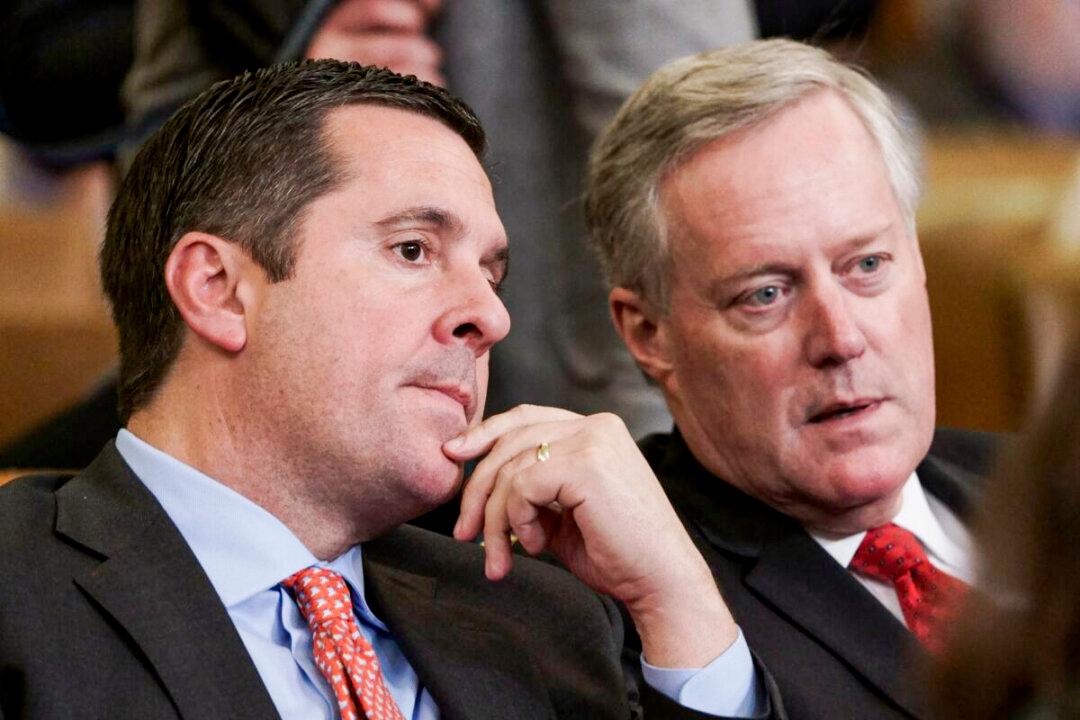Former White House chief of staff Mark Meadows will not testify in Congress’s probe of the Jan. 6 “Stop the Steal” rally amid a burgeoning legal battle over executive privilege, according to Meadows’s lawyer.
The Jan. 6 committee was formed in June in a mostly party-line vote, as all but two Republicans—Reps. Adam Kinzinger (R-Ill.) and Liz Cheney (R-Wyo.)—voted against forming the commission. The committee is led almost exclusively by Democrats, with Kinzinger and Cheney the only Republicans sitting on the panel.





